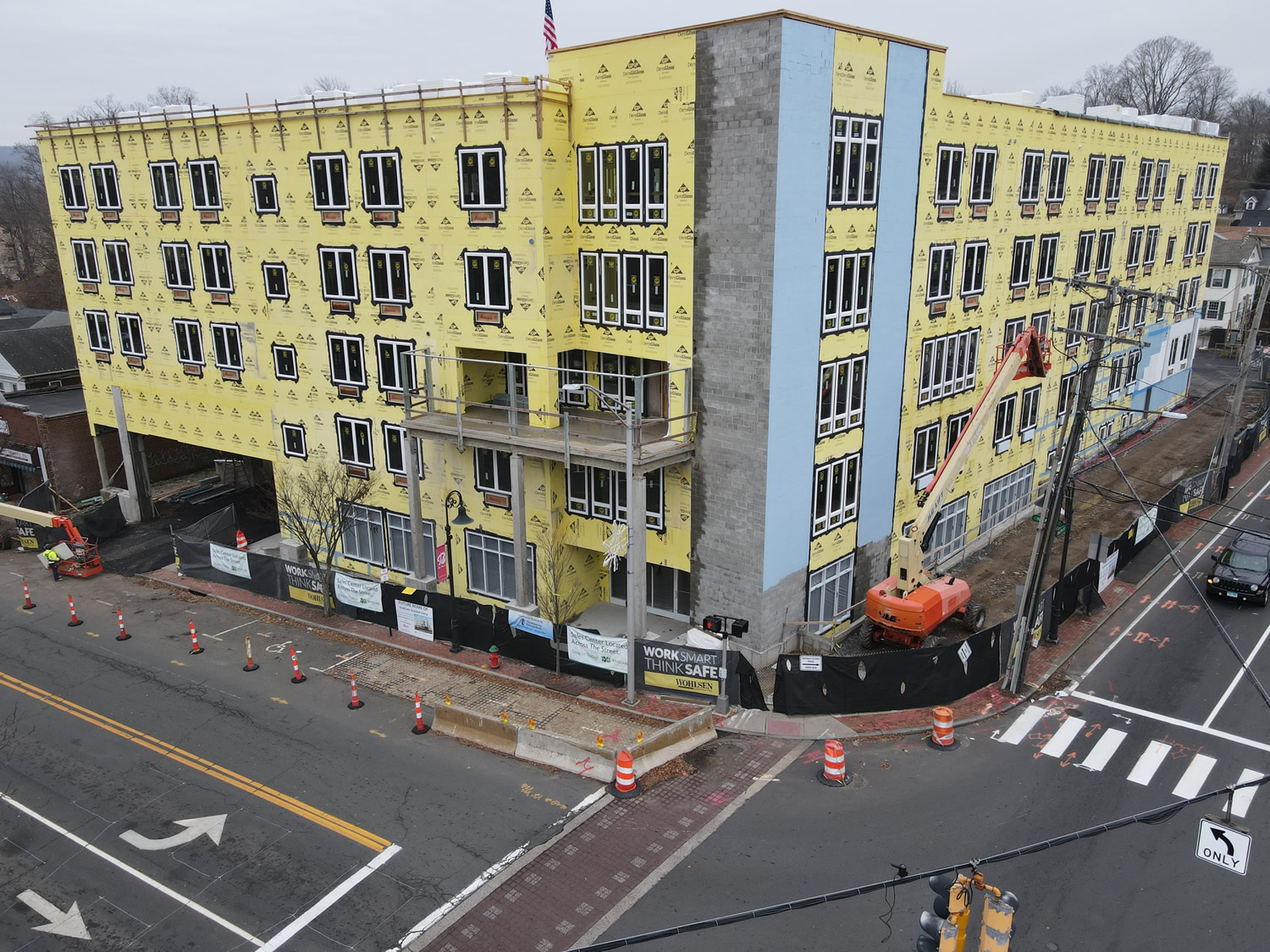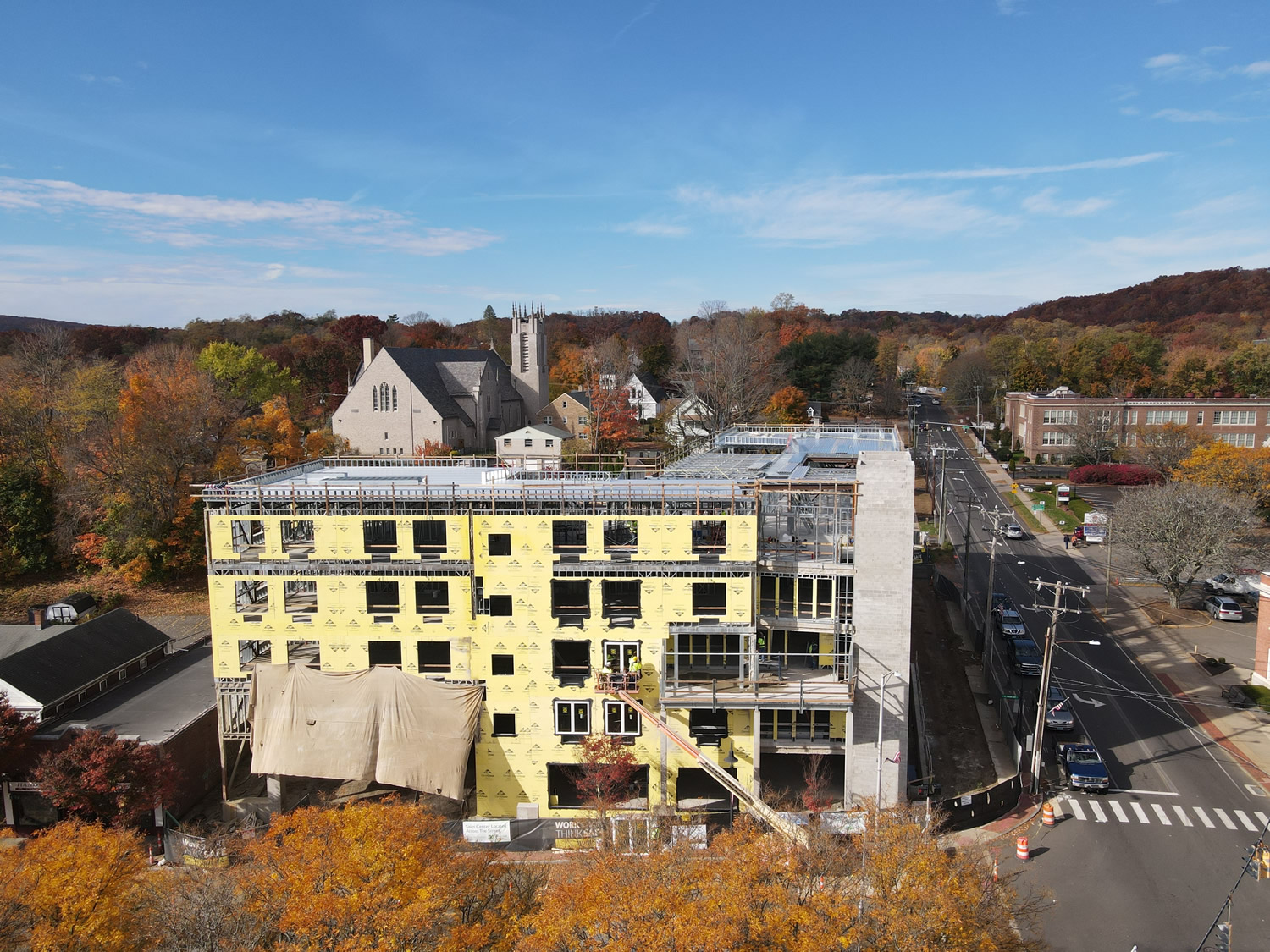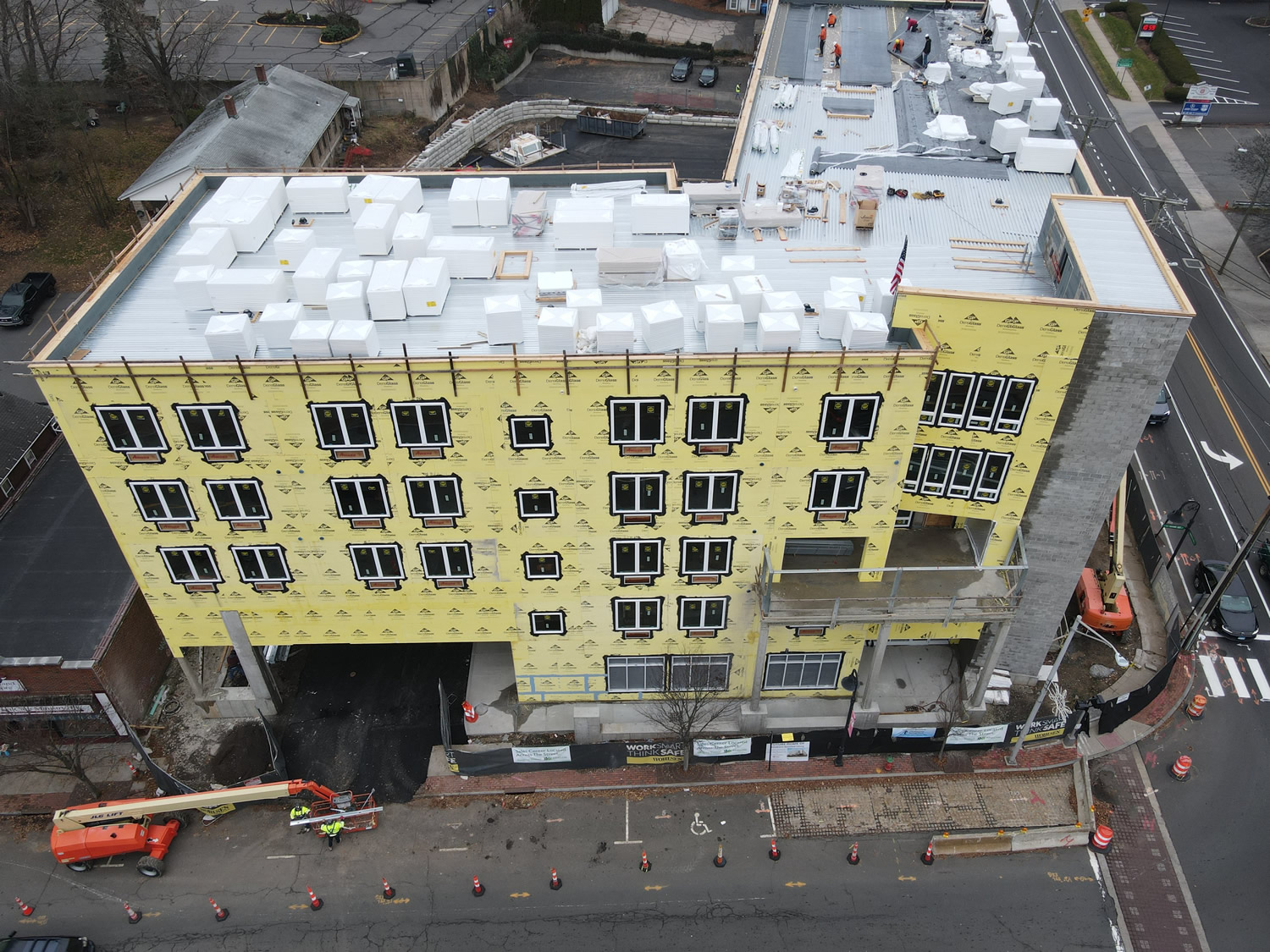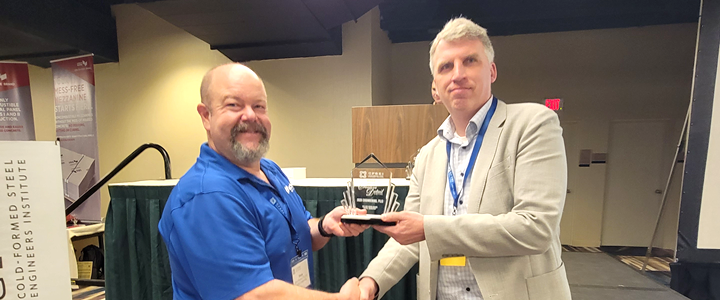2023 CFSEI CREATIVE DETAIL AWARD WINNER
THIRD PLACE
IRON ENGINEERING, PLLC – KIND CARE SENIOR HOUSING
BRISTOL, CONNECTICUT
 Kind Care Senior Housing Kind Care Senior Housing
483 N. Main Street
Bristol, CT 06010
Completion Date: December 2022
Construction Cost: $16 Million
Owner: Senior Living Development
Architect of Record: Patrick Mixdorf, EGA Architects
Engineer of Record for Structural Work: Patrick Jordan, P.E., Shelley Engineering, Inc.
Cold-Formed Steel Specialty Engineer: Anthony Coviello, P.E., S.E., Iron Engineering, PLLC
Cold-Formed Steel Specialty Contractor: Patrick Ferland, Interior Building Contractors, Inc.
Award Entry Submitted by: Anthony Coviello, P.E., S.E., Iron Engineering, PLLC
Project Background
 Kind Care Assisted Living is a four -story building constructed mostly with cold-formed steel (CFS) and a small amount of structural steel for lateral and second- floor podium support. Kind Care Assisted Living is a four -story building constructed mostly with cold-formed steel (CFS) and a small amount of structural steel for lateral and second- floor podium support.
Design Challenges and Solutions
During construction, a portion of structural steel framing was found to be in conflict with the window openings. The engineer of record (EOR) and contractor asked if we could support the column loads above with CFS headers. The design proved quite challenging and required VERY heavy sections and some unusual framing conditions where the sequence of framing was critical to making the detail a success. The dimensional restrictions did not allow for the header support track to be fastened to the jamb prior to the assembly of the header. The unusual use of jack studs and the height to the floor deck meant that the header had to be assembled in place and lifted out of the way to permit installation of the header support connection tracks. After  the tracks were installed, the header could be dropped into place. Also unusual to the detail was the need for web stiffeners INSIDE the header ends. The combination of these strange construction techniques had us concerned that the contractor and/or inspector would miss these critical items. At first, we typed a wall of text to explain the complexities of these issues, but we felt that the more we typed, the more likely our text would be ignored. Ultimately, we decided on a very unique way to respond. We recorded a video explanation of the issues and critical nature of the assembly and posted it on our YouTube channel. We also created a QR code and put that on the detail. This feature allowed anyone working with the detail to take out their smart phone, scan the QR code, and listen to the audio from the YouTube video, The contractor really appreciated the explanation and the effort we took to think about the constructability of the detail. the tracks were installed, the header could be dropped into place. Also unusual to the detail was the need for web stiffeners INSIDE the header ends. The combination of these strange construction techniques had us concerned that the contractor and/or inspector would miss these critical items. At first, we typed a wall of text to explain the complexities of these issues, but we felt that the more we typed, the more likely our text would be ignored. Ultimately, we decided on a very unique way to respond. We recorded a video explanation of the issues and critical nature of the assembly and posted it on our YouTube channel. We also created a QR code and put that on the detail. This feature allowed anyone working with the detail to take out their smart phone, scan the QR code, and listen to the audio from the YouTube video, The contractor really appreciated the explanation and the effort we took to think about the constructability of the detail.
We think that the unique use of a QR code video really allowed for a whole new dimension in construction drawings. BIM is often cited for its amazing 3-D coordination abilities. However, construction drawings enhanced with an attached audio or video feature add a fourth and fifth dimension to the drawings. Ultimately, this extra effort decreases the chance of errors and increases communication between the designer and the builder.
|

